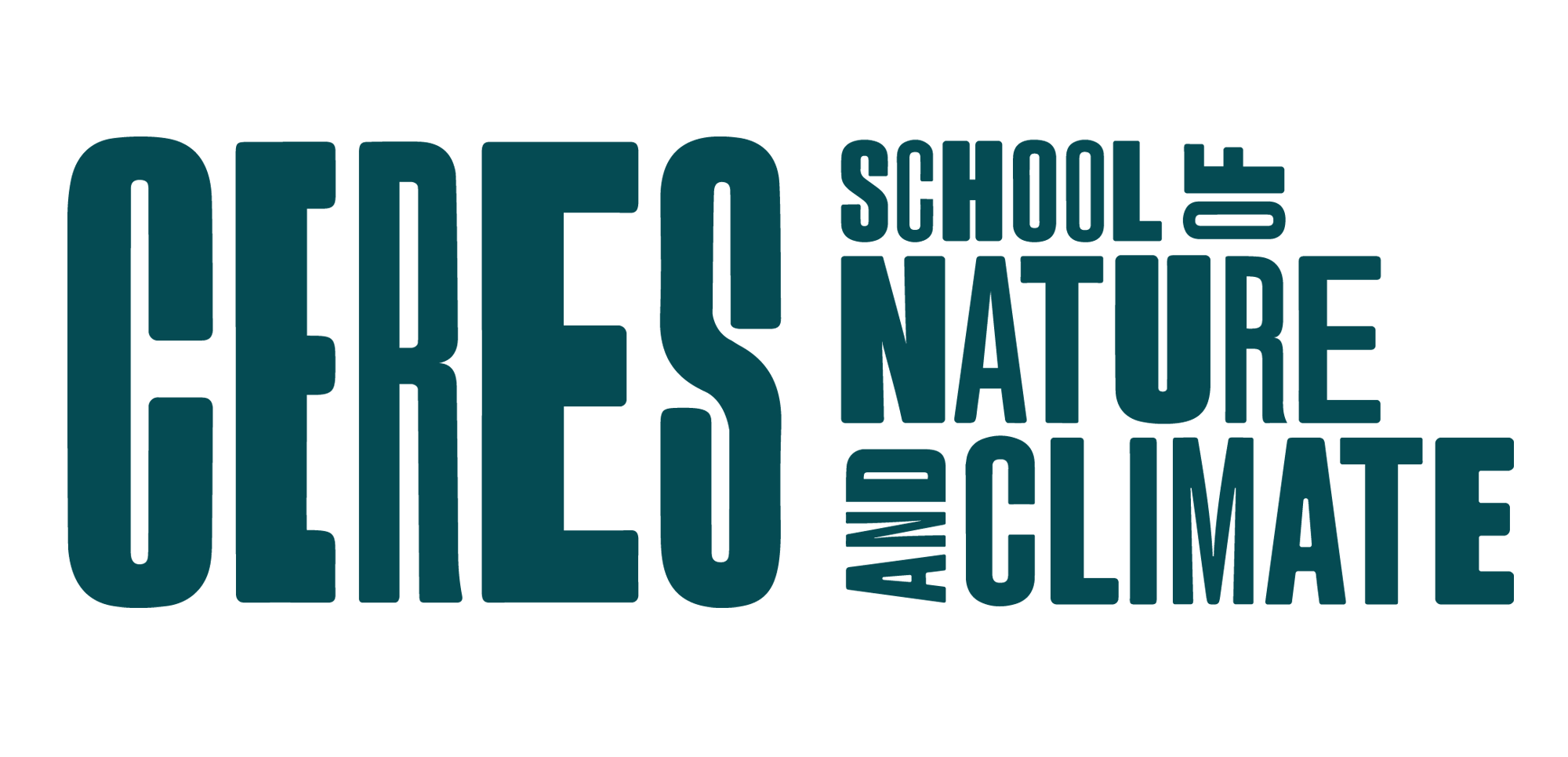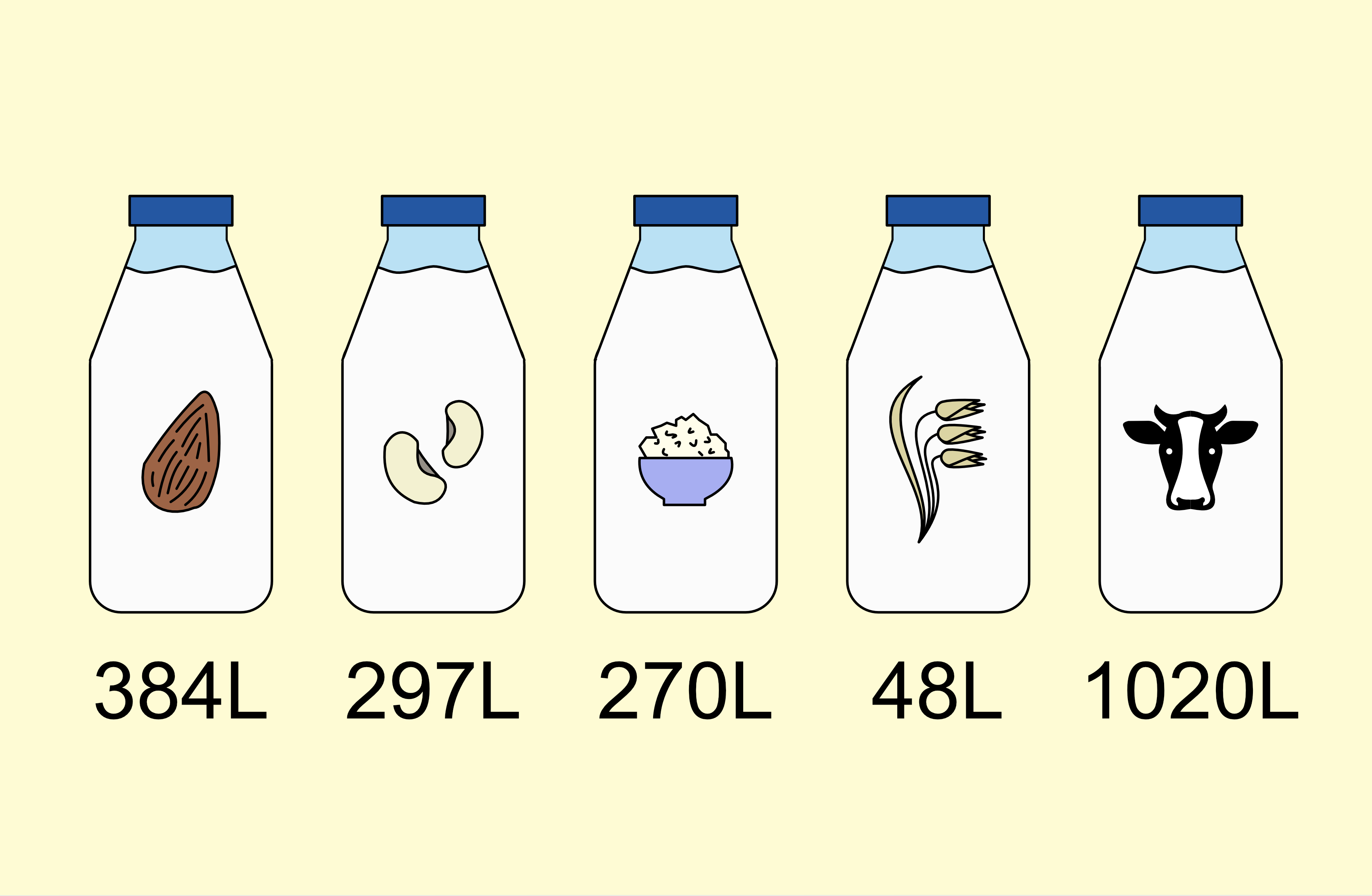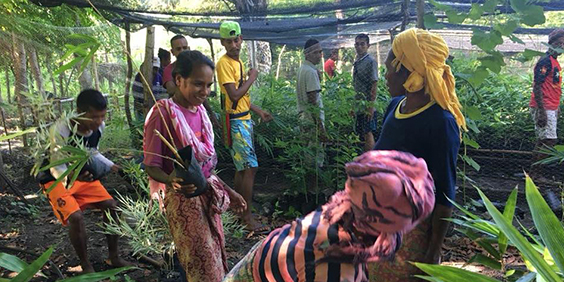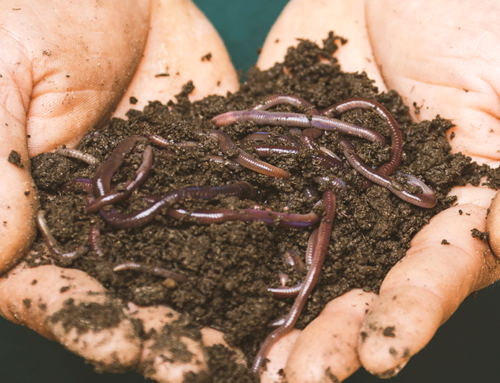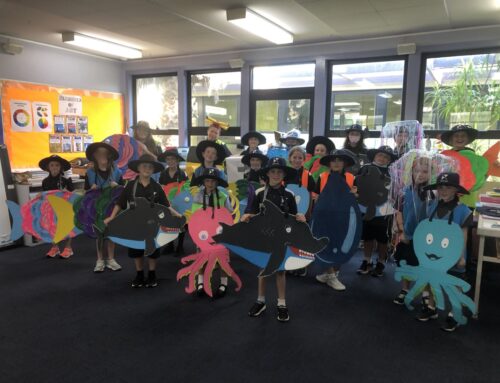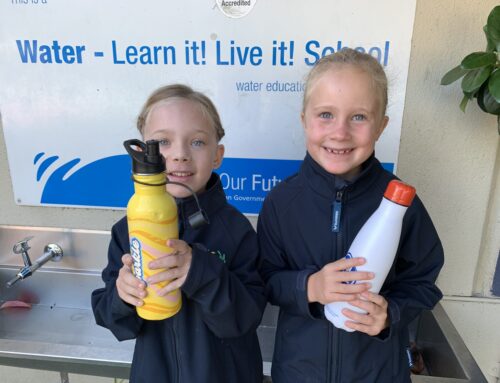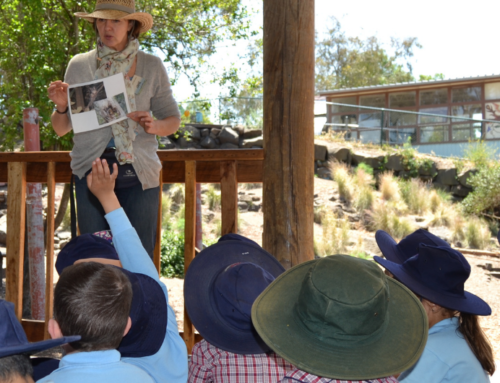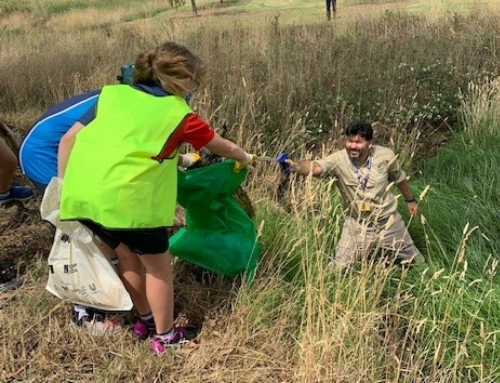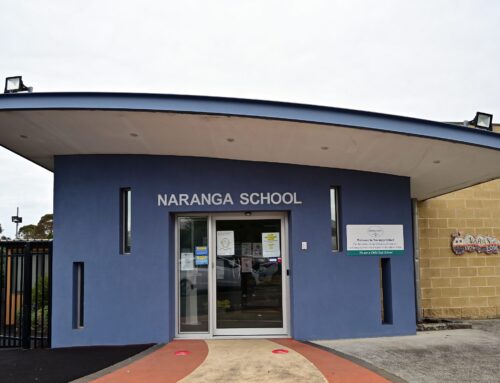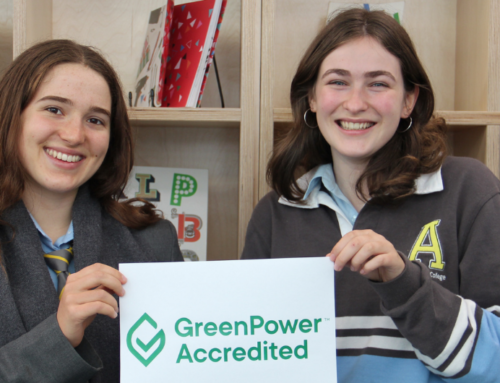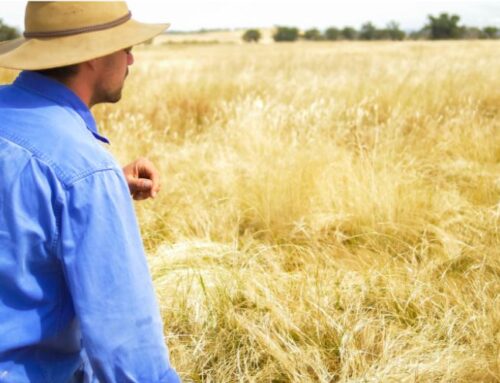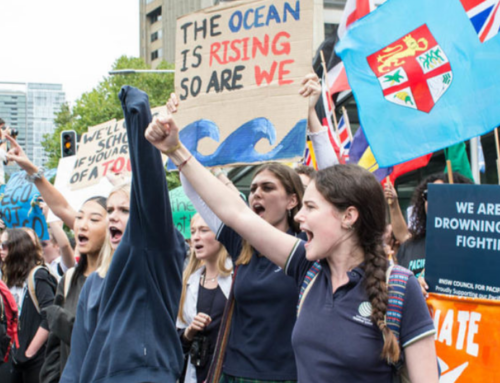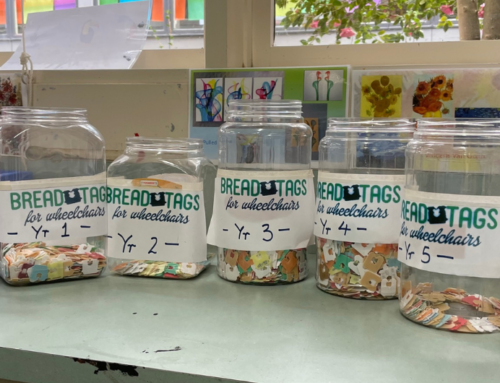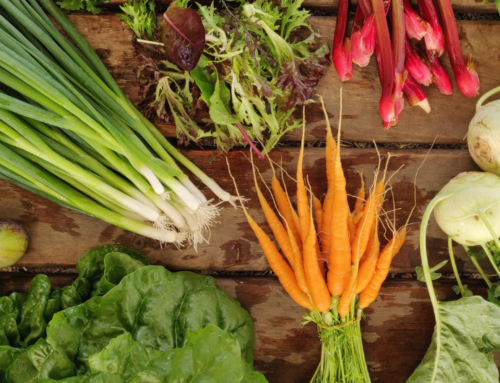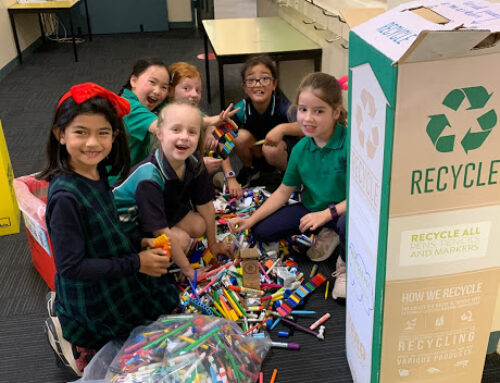August 2020
In this edition of ‘What Inspires Me’ we feature Jo Menzies, Sustainability and Environment Facilitator at Whitefriars College in Donvale.
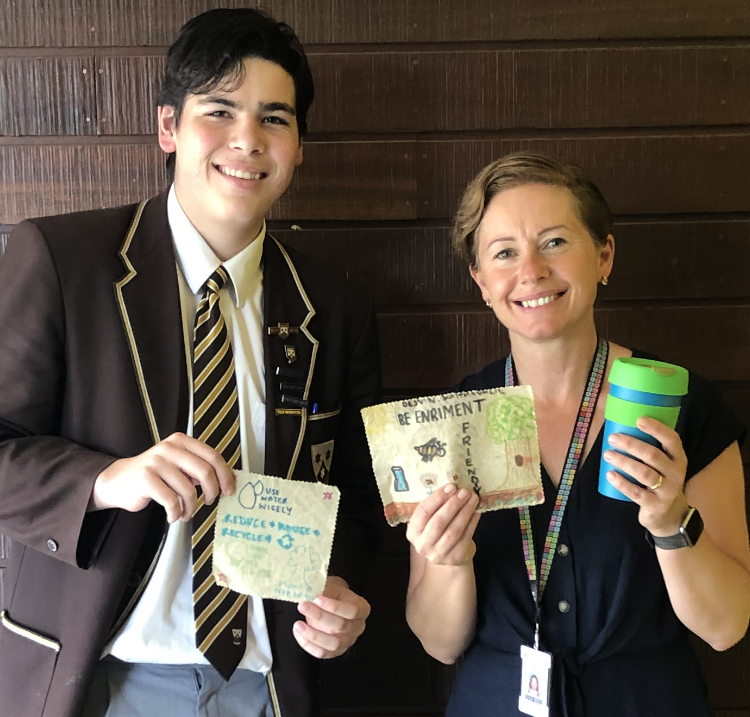
Jo with a Whitefriars College student promoting Beeswax Wraps and Keep Cups
1. How did you first get started with environmental education?
After a few years working as a geologist, I completed a Diploma of Education as a mature age student and began teaching in 2001 at Whitefriars College. The college is located in the stunning Mullum Mullum Valley, a bushland setting with wetlands and a creek as its border. I was grateful that enthusiastic staff had long established an environment club that I was naturally drawn to and could share my passion for the environment. Over the years the club has metamorphosed from a lunchtime club run by a couple of staff to the Sustainability & Environment Team that includes many staff. Environmental education is embedded into curriculum across different learning areas, into the management and operations of the college and celebrated throughout the year by the whole school.
2. What have been the biggest highlights of your journey so far?
One of the biggest highlights is the shift in culture at the college. When I began, the attitude was sustainable practices were a separate thing only completed by a few interested students and staff. Over the years, it has evolved into a whole college approach, where students and staff have gained an understanding that every day their actions impact the environment. Staff and students are adapting new sustainability habits into their daily routine and this has promoted discussions, shared personal stories and a range of staff and students requesting support for their own environmental ideas. Recently, a solar compost bin and beehive were established due to student-led action and other staff have organised recycling book, clothing and shoe events. What a highlight! This shift in culture has resulted in everyone learning from each, feeling empowered to make small but significant changes, involving management to improve operations that has importantly reduced resource use and saved the college $230,000 over the last five years. Now that is a highlight!
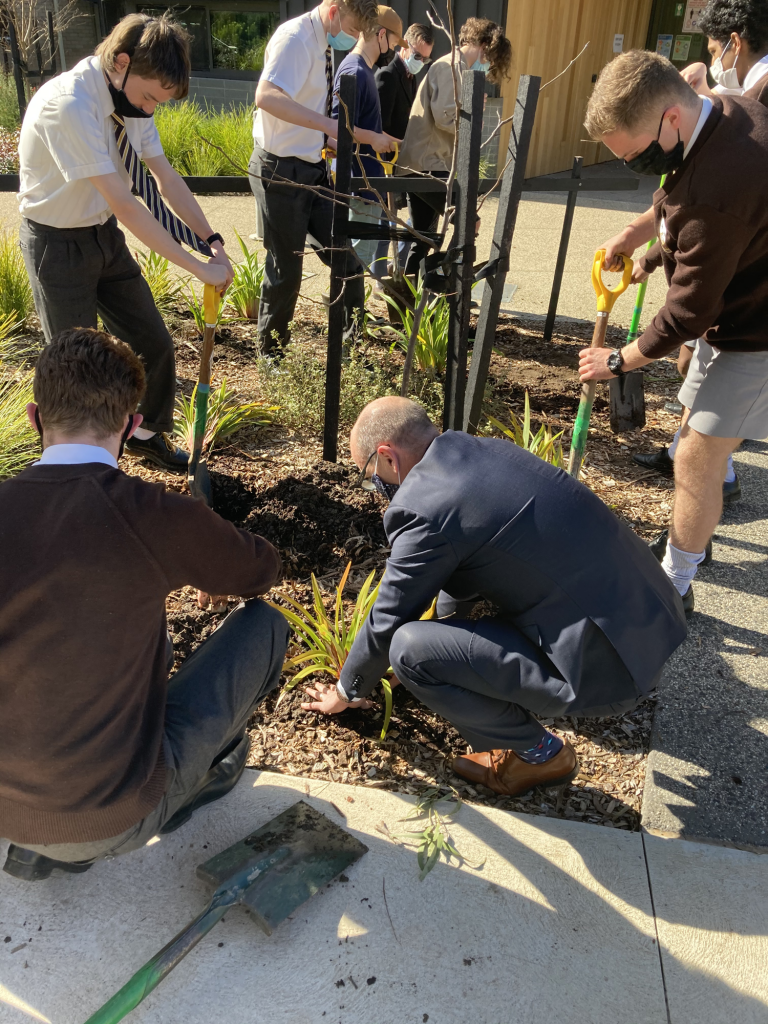
2020 National Tree Planting at Whitefriars College
3. How do you engage with people that are not buying into the sustainability message?
In a college environment of 1400 students and staff, sustainability can be community, whole-school, a cohort or individually approached. Whilst it is easier to share the sustainability message to the masses, I have learnt that engaging individuals who are reluctant to the sustainability message is to gain trust and invest in their emotional buy-in. I try to listen to what they are interested in, their view on the world and make it as easy as possible to increase their awareness and support small changes when there are time pressures. For example, the college Sustainability and Environment Team has highlighted a person’s love of “smashed avo on toast with a latte” is linked to bee’s role in food security, collecting staff soft plastics and running beeswax wrap workshops reduces landfill, offering to collect old socks highlights textile waste, offering plants to put in their home gardens promotes the importance of biodiversity, and organising staff swap days where staff share herbs, fruit, veg, seeds, jams etc. to support community connection. Whitefriars College is a special place where many staff, learning areas and spaces like the library, model sustainability action daily and this engages reluctant staff.
4. How have you continued to teach about sustainability during this period of remote learning, and what new programs or resources has your school introduced to make online learning engaging and fun?
Remote learning has shifted the focus in environmental education and celebrated that everyone has more time at home with family. The International Compost Awareness Week in May was celebrated with online fun facts about organic waste, links to resources and a daily compost quiz with prizes. The feedback was positive and interested staff and students had the time at home to establish composting. World Bee Day in May invited students and staff to a bee hotel making session. Families were encouraged to participate in the Melbourne Water Frog Census during April whilst out walking. World Environment Day in June was acknowledged with a virtual message and video from the Environment Captains and an infographic on how to make changes to live more sustainably. Although students returned to the college in July, there was online information about fabric vs disposable face masks, how to make masks and options for disposing them. National Tree Planting Day was acknowledged by online information about the importance of trees and staff and years 7-10 students were invited to send in a photo of their favourite tree. The level of engagement is different depending on the activity.
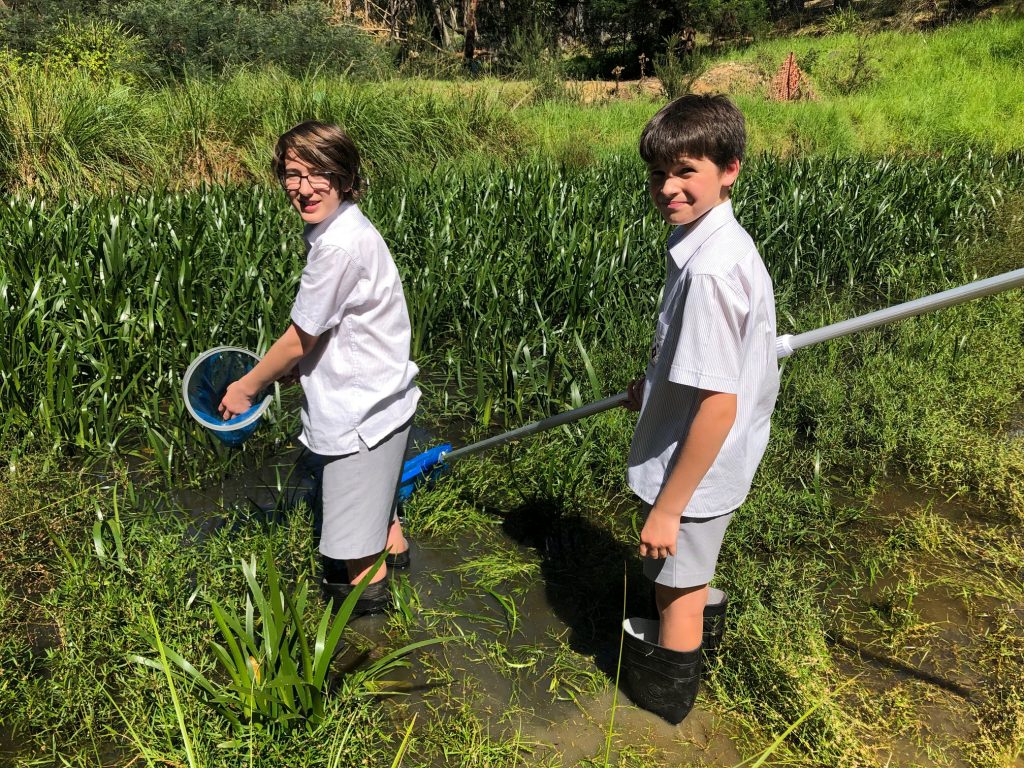
Students taking part in the STEW Bug Blitz earlier this year
5. Can you share a school sustainability project or story that you’ve heard about that stood out for you?
Whitefriars College participates in ResourceSmart Schools program. Their term workshops share what other Victorian schools are achieving. Not only do you pick up new ideas and have the opportunity to ask questions and gain resources, but the passion and actions showcased in schools is very inspiring. A recent sustainability project that stood out was from Barton Primary School. They shared their environmental message to the staff and students using musical parody. The videos include the very talented Jemma and the staff performing and changing the lyrics to popular songs to match the weekly environment topic, such as World Oceans Day, marine life pollution, waste sorting etc. Not only tapping into a different learning area is great, but it is highly entertaining. I just wish I could sing :0)
6. What is your favourite environmental education resource for schools?
ResourceSmart Schools is a fantastic program for anyone considering environmental education and needing guidance. The resources, CERES Outreach Team expertise and friendly help, networking and current learning professional development workshops is second to none. Other resources that have been great for environmental education include; Cool Australia, Melbourne Water, Planet Ark, Eastern Alliance for Sustainable Learning (check out your local council website), NASA and Yarran Dheran Nature Reserve social pages (check out your local action groups).
7. If you could be a sustainability superhero, what name would you choose and what powers would you have to make the world more sustainable into the future?
If I could be a sustainability superhero, I would be Captain Courage. My superpower would be the ability to enable everyone with the courage to question their thinking, beliefs and actions to confront the climate crisis that is critical in the next decade. Whilst all our individual and college practices is important, everyone needs the courage to put moral pressure on policy makers to listen to the science community and commit to fundamental changes to our energy and economic institutions. Courage will ultimately lead to necessary change for a sustainable future.
Thank you Jo for sharing your story!
Learn more about sustainability at Whitefriars College by visiting their website and Sustainability Hub blog page.

